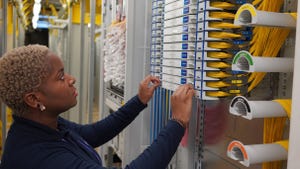Australia Dumps Huawei From Pacific Cable Project
Citing security concerns about Huawei, Australia's government has indicated it will fund a submarine project instead.

The Australian government has displaced Huawei from the construction of a 4,000km South Pacific cable and will largely fund the project itself.
Huawei Marine struck a deal with the Solomon Islands government to build a subsea cable to Sydney last year. (See Huawei at Center of Pacific Cable Spat.)
But the Australian Foreign Affairs and Trade Department recently issued a A$2.48 million ($2 million) consultancy contract to local telco Vocus Communications under its foreign aid program.
Vocus will reportedly carry out the initial scoping work before Australia's government funds next steps.
It marks the latest twist in a tale in which a sleepy South Pacific backwater has become embroiled in a regional political play.
The submarine contract was originally awarded in 2015 to US fiber vendor Xtera for $45 million, ahead of rivals Huawei Marine and Alcatel.
Funded by the Asian Development Bank (ADB), the Xtera project was intended to combine both new and refurbished cables.
However, Xtera went into Chapter 11 bankruptcy in late 2016, although it claimed it had lost none of its customers.
Unexpectedly, and without any fresh tender, Huawei Marine announced it had been awarded a contract to build a 2.5TB cable system in July last year.
The value of the contract was not revealed, nor was the source of funding. The ADB played no role in the bid.
The lack of transparency prompted the Solomon Islands' then-prime minister Manasseh Sogavare to deny he had been bribed.
The Australian government was so alarmed about the role of Huawei Technologies Co. Ltd. that it sent the head of its security service to personally brief Sogavare.
Sogavare was replaced as prime minister in November by Rick Hou, who had been critical of the Huawei deal, but discussions were underway with Canberra even before Hou was elected.
For more fixed broadband market coverage and insights, check out our dedicated broadband content channel here on Light Reading.
Jonathan Pryke, director of the Pacific Islands Program at an Australian think tank, Lowy Institute, says he did not believe Papua New Guinea or Solomon Islands were too concerned about Australia's national interest.
"They just want these cables for the benefits of their private sector and their economy," he told ABC, the Australian broadcaster.
He said the China-funded cable created some "really pointy security issues."
He also said Australia's resumption of the cable project was aimed partly at Huawei and partly at countering China's growing influence in the Pacific, which has become a national security priority.
Under the new plan, the Solomon Islands cable will connect with another Australia-funded system from Papua New Guinea to Sydney.
The cost of the original Solomons-Sydney cable was estimated at A$86 million.
The Solomon Islands, east of Papua New Guinea, has a population of around 650,000 spread over 11,000sq km. It has no fiber connectivity and relies on satellite for Internet and voice communications.
Like authorities and operators in the US, the Australian government has said it believes Huawei's close links to Beijing create a security risk for telecom equipment. (See Verizon Dropping Huawei Plans, Too – Report.)
It has blocked the privately owned vendor from the NBN project, although -- unlike in the US -- Huawei is permitted to supply mobile infrastructure.
— Robert Clark, contributing editor, special to Light Reading
Read more about:
AsiaAbout the Author(s)
You May Also Like












